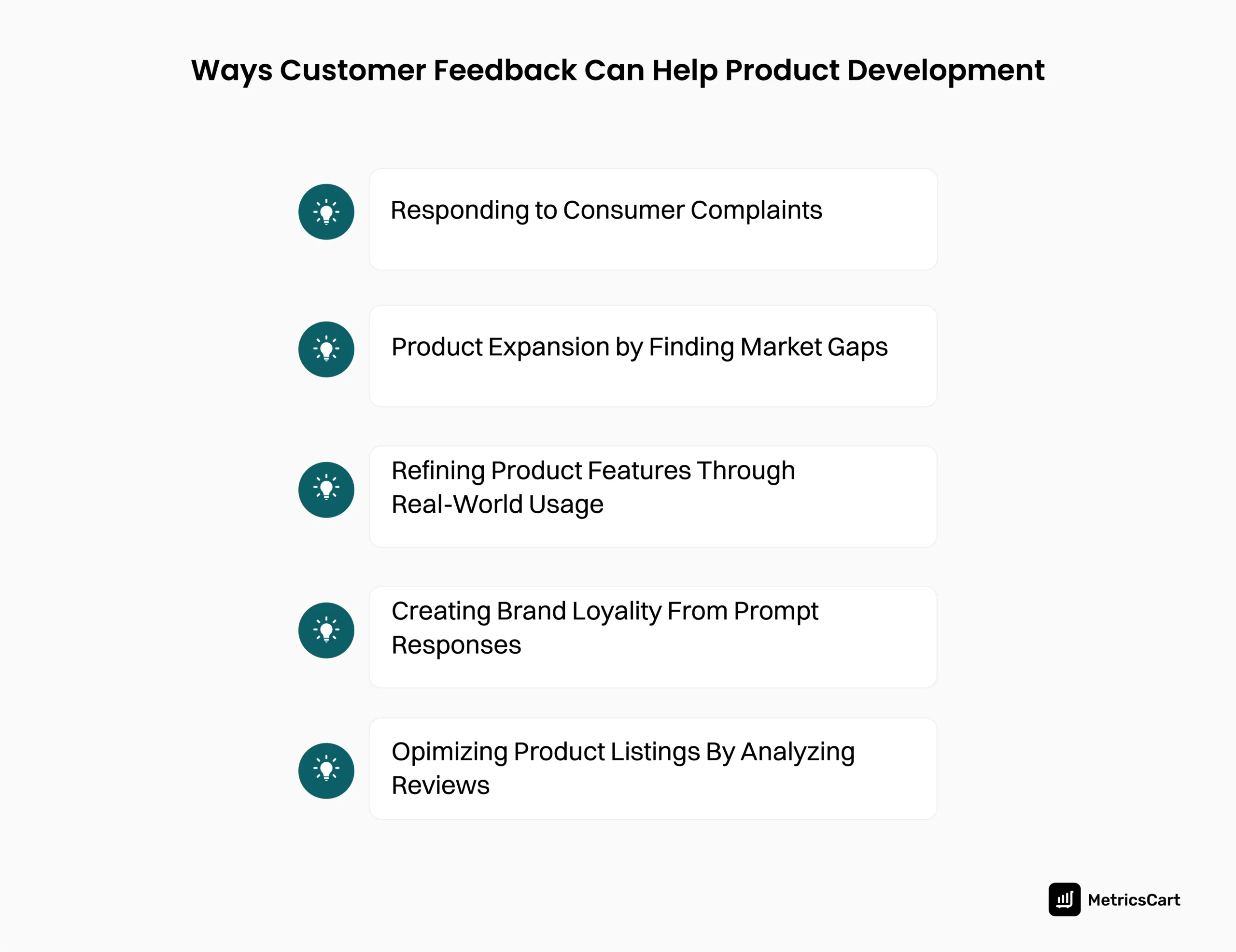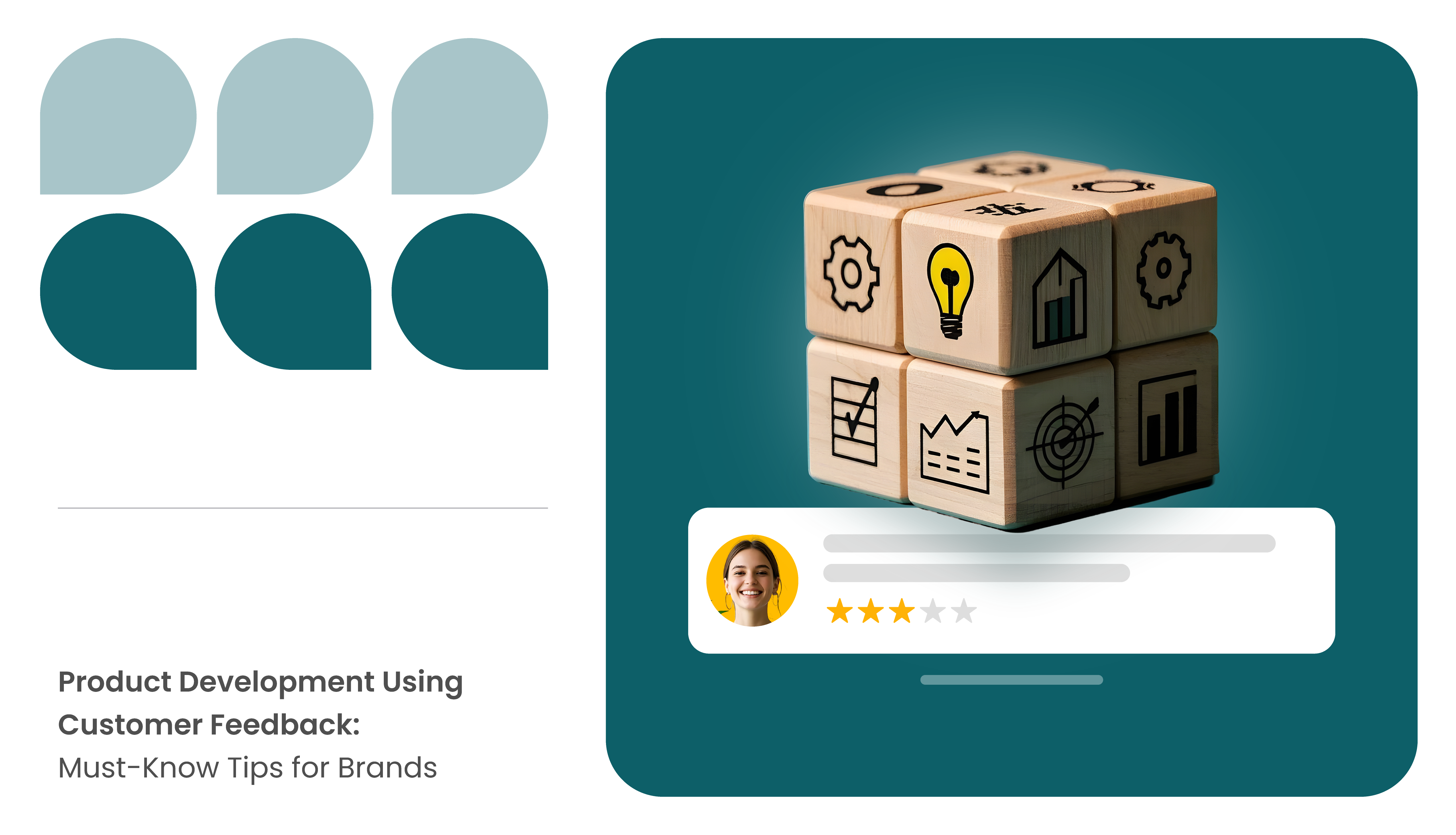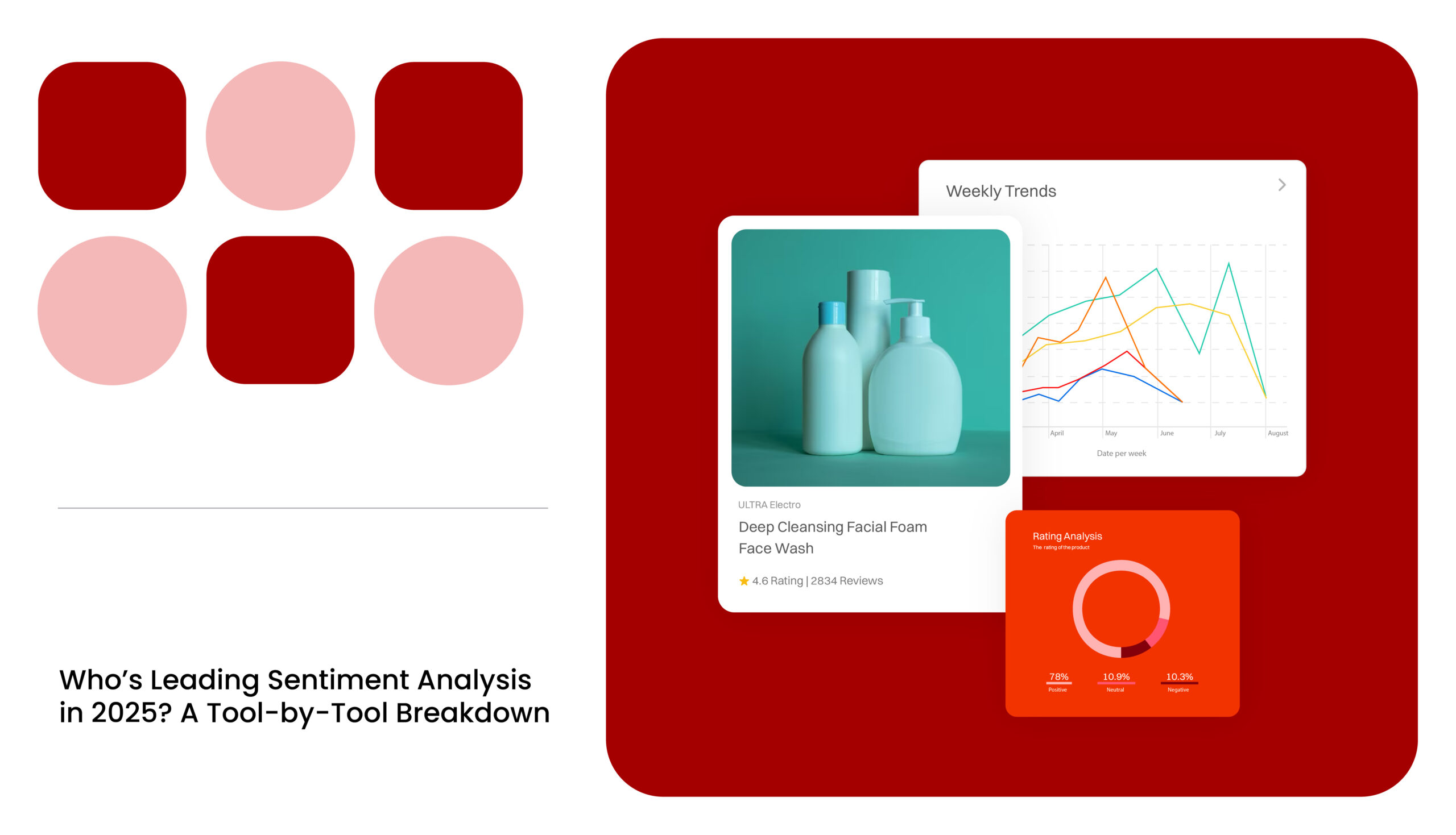Why do some brands become customer favorites while others struggle to keep up? The secret isn’t just about having the best product; it’s about listening to the people who actually use your brand. Brands that pay attention to their customer feedback stand a sure-shot chance at winning in e-commerce.
Amazon Basics, one of the most successful private-label brands on Amazon, optimizes its products by analyzing thousands of customer reviews.
For small brands, online sellers, and e-commerce managers, product development using customer feedback is a game-changer. If you’re still making decisions based only on internal brainstorming sessions, it’s time to rethink your strategy.
Using an efficient e-commerce product review analysis platform can help brands break down customer feedback into themes and sub-themes. Sentiment analysis can throw light on nuanced consumer behavior and product expectations that drive innovative thinking in product development.
READ MORE | How can thematic review analysis help your business? Read our blog Power up Your Business With Thematic Review Analysis: A Brand Guide.
How Customer Feedback Drives Product Innovation and Development
Customer feedback isn’t just about fixing what’s wrong; it’s about unlocking opportunities for new product ideas, refining existing features, and making your brand more customer-centric.
Today, brands that actively use user-generated content for product development are the ones gaining market share, improving customer loyalty, and reducing return rates.
Here’s how analyzing customer feedback can lead to better product development and innovation:

Addressing Common Customer Complaints
Nothing frustrates customers more than feeling unheard. If multiple reviews mention the same issue, whether it’s product durability, incorrect sizing, or misleading descriptions, it’s a clear signal that changes need to be made.
A fitness brand selling resistance bands discovered that customers frequently complained about bands snapping after a few uses.
Instead of ignoring the issue, they dug deeper into their e-commerce product development reviews, switched to a more durable material, and improved the packaging to highlight correct usage. The result? A 60% drop in negative reviews and a boost in repeat customers.
Use MetricsCart review monitoring tools to detect recurring complaints quickly and implement targeted improvements. Addressing these concerns proactively will enhance customer satisfaction and reduce costly returns.
Product Expansion by Spotting Gaps in the Market
Customers often provide free market research by telling brands what they need but can’t find. By actively tracking customer feedback, brands can identify product gaps and emerging trends before competitors do.
A small skincare brand noticed that many reviews praised their daily moisturizer but mentioned the strong fragrance as a downside. They realized there was an opportunity to launch a fragrance-free version, targeting customers with sensitive skin.
Within months, this new version became one of their best-selling products, even attracting new customers who previously avoided scented skincare.
Brands should always keep an eye out for requests in reviews. If multiple customers ask for a specific feature, color, size, or variant, take it as a sign that there’s demand for an upgraded or additional product.

Refining Product Features Based on Real Usage
Sometimes, the way customers actually use a product differs from how a brand initially designed it. Reviewing real-world customer experiences using sentiment analysis can help brands optimize product functionality.
A company selling wireless keyboards introduced a model with a built-in tablet stand. While the concept seemed perfect in theory, reviews revealed that heavier tablets were tipping over, making the stand unreliable.
By strengthening the stand and updating the design, the brand re-released a more user-friendly version, which soon became a best-seller.
Using ratings for product development ensures that you’re fine-tuning features based on actual customer needs rather than assumptions. You should take note of feature-related complaints and test potential improvements before rolling them out.
Boosting Brand Loyalty Through Prompt Responses
Engaging with customers and making visible improvements based on their feedback builds long-term brand loyalty. When shoppers feel like their voices matter, they’re more likely to stick with your brand, leave positive reviews, and recommend your products to others.
A specialty coffee brand saw that many customers loved their dark roast but wished for a compostable packaging option.
By listening to their audience and launching an eco-friendly alternative, they built stronger relationships with sustainability-conscious consumers and increased their brand retention rate.
Reply to customer reviews, acknowledge suggestions, and actively communicate product improvements. Transparency makes shoppers feel valued and encourages repeat purchases.
Using Ratings and Reviews Analysis to Optimize Product Listings
It’s not just the product that can be improved; how it’s presented also matters. You can improve search ranking through reviews. Many brands lose sales simply because their product descriptions lack essential details that customers care about.

In the fifth episode of the Digital Shelf Insider podcast, Morgan explains the importance of content compliance and regularly updating your product pages to drive more conversions. You can catch the full episode at:
Here is an example: a furniture brand noticed that many negative reviews mentioned, “Took too long to assemble.” Instead of ignoring these concerns, they responded by adding an easy-to-follow assembly video tutorial to their product page. This small change resulted in higher conversion rates and significantly fewer product returns.
Use product development from reviews to improve your product listings. Writing product descriptions with clarity, adding better product images, and enhancing FAQs based on what customers frequently ask not only increases conversions but also reduces pre-purchase hesitation.
READ MORE | Confused about which review management software to use? Check out our blog on Choosing the Right Online Review Management Software: A Brand Perspective.
Conclusion
Product development isn’t just about what you think will sell; it’s about listening to your customers to know what they prefer and how you can find a balance between product design and usability.
The most innovative brands are those that treat e-commerce product development reviews as a blueprint for success.
Here is the success story of an electronic brand that used sentiment analysis to improve its product, leading to increased sales:
“As an electronics brand, we thought our wireless earbuds were a hit until sentiment analysis revealed recurring complaints about fit and battery life. By analyzing customer reviews, we pinpointed key issues, redesigned the earbuds for comfort, and improved battery efficiency.
After launching the upgraded version, our ratings jumped from 3.8 to 4.6 stars!”
If you are a brand or online seller navigating the crowded digital shelf, know that customer feedback analysis using digital shelf solutions like MetricsCart can give you a competitive advantage. It’s time to move beyond assumptions and start building products that shoppers actually want.
Ready To Take Your Brand Performance to the Next Level?
FAQs
E-commerce brands can gather feedback through product reviews, surveys, social media polls, customer support interactions, and direct email communication. Using advanced thematic review analysis can also help track patterns in customer reviews for product development.
Negative reviews highlight product weaknesses, allowing brands to address issues before they escalate. By using ratings for product development, brands can refine design, fix defects, and update product descriptions to set clearer expectations.
Small brands can use customer feedback to differentiate themselves by creating personalized solutions, addressing unmet needs faster than big brands, and building stronger brand loyalty through direct engagement.
Brands should continuously monitor e-commerce product reviews and make incremental improvements. Major product updates can be scheduled quarterly or annually, depending on the feedback volume and urgency of required changes.
Brands must evaluate customer suggestions based on demand volume, production costs, and market trends. Prioritizing improvements with the highest ROI and customer impact ensures sustainable growth while maintaining product quality.






